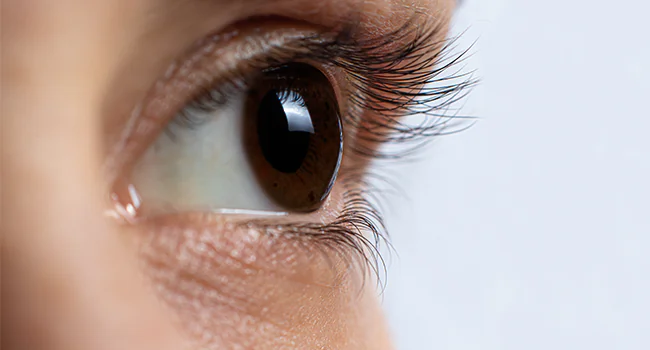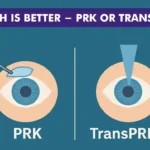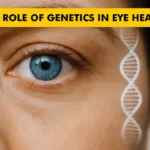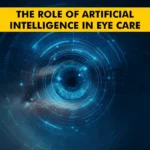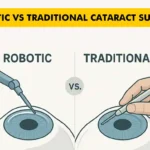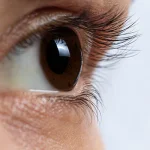Keratoconus affects one out of every 2,000 people, and you’re probably unaware of it. Keratoconus is a disorder in which the cornea bulges outward into a cone shape rather than taking a spherical shape. The dome-shaped cornea is held together by collagen, and as these protein fibres weaken, the cornea gradually takes on the form of a cone.
Keratoconus is not commonly inherited. It can, however, be passed on from generation to generation. Certain medical disorders, such as allergies cause the illness to progress more quickly. Furthermore, persons who engage in chronic eye rubbing are more vulnerable; it is critical to ensure that children do not rub their eyes too frequently.
How Is Keratoconus Detected?
During an eye exam, an eye specialist may identify signs. Among the symptoms are:
- An abrupt shift in vision in only one eye
- When viewing with only one eye, you have double vision.
- Objects may appear distorted
- Bright lights may appear to have halo effects around them
- Double, triple, and even quadruple ghost images
- Difficulty driving due to cloudy vision, particularly at night
Can Keratoconus be cured permanently?
There is currently no cure for Keratoconus. It is a chronic eye illness. Thankfully, though, ophthalmologists can successfully manage most cases of Keratoconus. Scleral contact lenses consisting of modern rigid gas permeable lens materials are often the treatment of choice for mild to moderate Keratoconus.
Because these lenses are larger than standard gas permeable (GP) contacts, they may soar over even relatively wide portions of misshapen cornea and provide clear, comfortable vision.
For more severe keratoconus treatment, a comparatively non-invasive technique known as corneal crosslinking (CXL) can reinforce and stabilise a thinning, unevenly shaped cornea.
What is the best treatment for Keratoconus?
Depending on the severity of the Keratoconus, many keratoconus treatment options are available. They begin with glasses and contact lenses and progress to C3R or CXL, INTACS or ring segments, DALK, combined therapy with ICL, and PK for severe patients.
Best Keratoconus new treatment: Corneal Collagen Crosslinking (CXL or C3R)
CXL eye surgery is a non-invasive Keratoconus treatment option that strengthens the corneal tissues to stabilise vision in the disorder’s early stages. CXL entails a single application of riboflavin drops to the eyes. When exposed to UV light, riboflavin is activated.
This process enhances collagen crosslinking in the stroma, strengthening the corneal tissue and aiding vision recovery and stabilisation. Keratoconus’s new treatment option cannot entirely fix your vision, and you may still need to wear glasses. Nonetheless, this keratoconus treatment option will keep your visual difficulties from deteriorating and safeguard your current vision.
The Keratoconus treatment is generally conducted in an operation theatre, where a local anaesthetic in the form of eye drops is administered to your eye. The corneal surface is then treated with riboflavin drops for 30 minutes. After 30 minutes, it is exposed to UV rays, which activate the riboflavin, enhancing crosslinking and helping to strengthen the corneal tissue. These enhanced linkages keep your vision at its current level while preventing Keratoconus from deteriorating.
Why Centre for Sight?
Keratoconus treatment options at Centre for Sight include corneal collagen crosslinking with riboflavin, intrastromal ring segments, and Implantable Collamer Lenses (ICL) to corneal transplant.
We have advanced corneal evaluation equipment such as Corneal topography systems (Pentacam & Orbscan), Corvis to test corneal biomechanics & strength, which aid in the early detection and monitoring of disease. So, if you are looking for a top keratoconus treatment hospital in India with state-of-the-art technology, head to one of our centres and let our experts take care of your eyes.
Article: Choosing the Right Keratoconus Treatment
Author: CFS Editorial Team | July 07 2022 | UPDATED 02:00 IST
*The views expressed here are solely those of the author in his private capacity and do not in any way represent the views of Centre for Sight.
